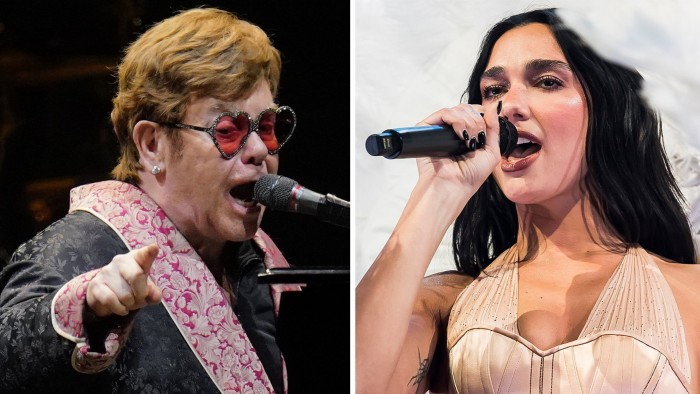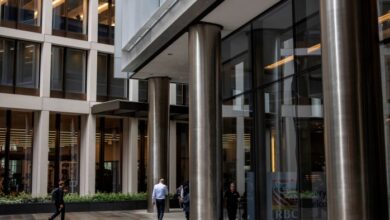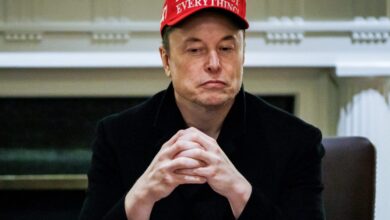Elton John and Dua Lipa urge Starmer to back UK artists in AI copyright row

Stay informed with free updates
Simply sign up to the Media myFT Digest — delivered directly to your inbox.
Sir Paul McCartney, Richard Curtis and Dua Lipa are among the 400 top musicians, artists and media executives who have written to Prime Minister Sir Keir Starmer seeking support to protect copyright from being ripped off by artificial intelligence tools.
The letter calls on Starmer to back an amendment next week to a bill introduced by Baroness Beeban Kidron, a crossbench peer, that would give transparency and protection over whether artists’ work is being used to train AI models.
Kidron’s amendment would make tech giants tell copyright owners which individual works — from music and books to films and newspapers — they have used to train their AI models. This would allow companies and artists “to hold AI firms accountable for the mass theft of creative works that continues to take place”, the letter says.
The letter also has support from Coldplay, Sir Elton John, Russell T Davies, Antony Gormley and senior executives from news groups such as the Telegraph and The Times. The Financial Times has also signed the letter.

The amendment to the Data (Use and Access) Bill was this week defeated in the House of Commons, but will be voted on again in the House of Lords on Monday.
The government has made its own amendments that would guarantee an economic impact assessment of different options, while ministers are retreating from a previously “preferred” position that would have meant that creative industries would need to opt out from their work being scraped by AI.
Officials insist all options are on the table following the end of a consultation into various proposals this year.
A government spokesperson said: “We want our creative industries and AI companies to flourish, which is why we’re consulting on a package of measures that we hope will work for both sectors. We’re clear that no changes will be considered unless we are completely satisfied they work for creators.”
However, executives are still concerned that tech groups will ultimately be allowed to override copyright rules unless the government provides legislative backing guaranteeing transparency and protection.
The letter warns that if artists are forced to give away their work, the UK “will lose an immense growth opportunity . . . and with it our future income, the UK’s position as a creative powerhouse, and any hope that the technology of daily life will embody the values and laws of the UK”.
The use of the data bill is the latest attempt by the creative industries to protect their copyright from being used by AI groups without attribution or payment.
Kidron said the UK creative industries “must not be sacrificed to the interests of a handful of US tech companies”.
She added: “The UK is in a unique position to take its place a global player in the international AI supply chain, but to grasp that opportunity requires the transparency provided for in my amendments, which are essential to create a vibrant licensing market.”
Lord Kevin Brennan of Canton, former MP and Labour Peer, said: “We cannot let mass copyright theft inflict damage on our economy for years to come.”
https://www.ft.com/__origami/service/image/v2/images/raw/https%3A%2F%2Fd1e00ek4ebabms.cloudfront.net%2Fproduction%2F92ee6b8e-ebda-451c-aa8a-2ac8d4cc6ffb.jpg?source=next-article&fit=scale-down&quality=highest&width=700&dpr=1
2025-05-10 09:06:46





